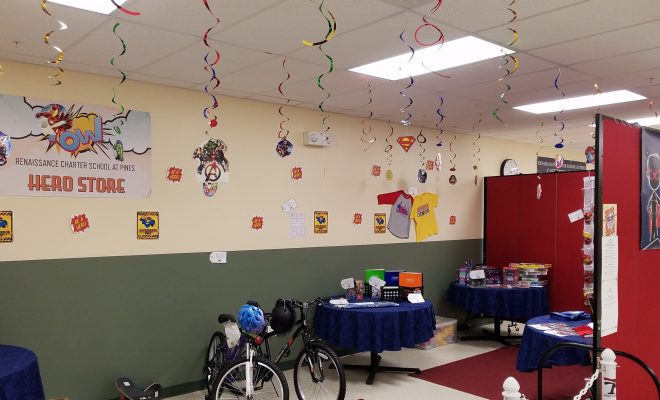4 Keys to Getting Reluctant Readers from ‘No’ to ‘Wow’

Interactive, multimedia environments can turn reading into something that students actually enjoy.
By Ted Levine
Reading is the most fundamental skill an early learner can develop to start on a path towards success, both as a student and as a young citizen. But I hear from educators all the time about how hard it is to engage reluctant readers, especially at the elementary level when development is most crucial. So the question then becomes: What tactics can we use as educators to encourage those reluctant readers to turn the corner, and ultimately to get them excited about reading and learning?
Just like any other skill, reading is something everyone needs to work at. It requires time, effort, and repetition in order to be properly developed. While educators have the important task of working with young learners to develop their reading skills, student also need support and encouragement at home. No tactics or “shortcuts” will help reluctant readers make progress unless there is time carved out in class and at home to focus on their reading. Having said that, there are some key tactics that educators can use to help drive reluctant readers down the path towards reading proficiency—and even enjoyment.
1) Invite young learners to engage in multimedia learning environments. A multimedia learning environment may consist of reading texts, photographs, videos, audio, and even some interactive elements, all mashed up into one single experience. Technology is often overlooked when it comes to reading, but multimedia learning environments can provide an incredible springboard for students who are reluctant to pick up a book.
Young learners are often drawn into the excitement and movement of multimedia elements, particularly video and interactive content. By contrast, huge chunks of text and reading environments that lack any visually engaging components are daunting for reluctant readers.
We recently held a webinar with Dr. Kimberly Greene, an associate professor of education at Brandman University. Dr. Greene had strong opinions about the importance of shorter passages, approachable fonts, and digital reading environments that deliver an inviting experience. Another of her strong opinions is the second tactic I will share:
2) Don’t send reluctant readers into environments that are too “childish.” This point struck a particularly strong chord with the webinar’s attendees, who were mostly upper elementary and middle school educators.
For example, let’s take a 6th-grade student who currently reads at a 3rd-grade level. The print or digital reading environments available at that reading level often have a childish design. Reading something obviously designed for young kids can be a source of embarrassment for the student to read in front of his or her peers, and oftentimes is counterproductive to achieving the desired outcomes for this type of student. Instead, every student in this example 6th-grade class should be able to experience an interactive reading environment like Kids Discover Online, where every student in class has the same rich reading experience, but at slightly different levels.
3) Start small. For a reluctant reader, sitting down to read for a full hour might feel overwhelming. Aim to have them start with just 15 minutes of reading. You can even begin with five or 10 minutes. No marathon runner kicks off their training season with a 26-mile run. The point is to break down the walls of intimidation and frustration, and to gradually build up your learner’s skills.
4) Create “wow” moments. Getting kids to read is one thing; getting them excited about reading is another. I believe that giving students a reading experience filled with iconic photographs, beautiful illustrations, short-form video, and interactive elements that support the text will create the “wow” moments that every educator so desperately seeks to deliver to his or her students. Having these inspiring moments when they “get it” will lead students to approach reading with feelings of excitement instead of apprehension. Rather than seeing reading as a chore, they will look forward to it and engage on a deeper level with the content.
If we can instill that love of reading in our students, we are giving them a huge head start on the road to academic success.
Ted Levine is the president and CEO of Kids Discover, follow him on twitter, @KIDS_Discover
Read all of our posts about EdTech and Innovation by clicking here.





